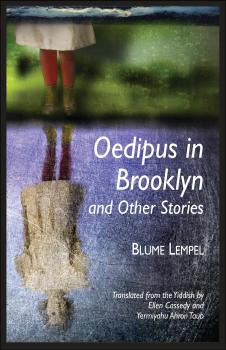ТОП просматриваемых книг сайта:
Blume Lempel
Список книг автора Blume LempelАннотация
Winner of the Modern Language Association’s Fania & Yaakov Leviant Memorial Prize in Yiddish Studies (2018) Ellen Cassedy and Yermiyahu Ahron Taub (the translators) on encountering Blume Lempel’s stories wrote: «When we began reading and translating, we didn’t know we were going to find a mother drawn into an incestuous relationship with her blind son. We didn’t know we’d meet a young woman lying on the table at an abortion clinic. We didn’t know we’d meet a middle-aged woman full of erotic imaginings as she readies herself for a blind date. Buried in this forgotten Yiddish-language material, we found modernist stories and modernist story-telling techniques – imagine reading Gabriel Garcia Marquez with the conversational touch of Grace Paley.»Lempel (1907–1999) was one of a small number of writers in the United States who wrote in Yiddish into the 1990s. Though many of her stories opened a window on the Old World and the Holocaust, she did not confine herself to these landscapes or themes. She often wrote about the margins of society, and about subjects considered untouchable. her prize-winning fiction is remarkable for its psychological acuity, its unflinching examination of erotic themes and gender relations, and its technical virtuosity. Mirroring the dislocation of mostly women protagonists, her stories move between present and past, Old World and New, dream and reality.While many of her stories opened a window on the Old World and the Holocaust, she also wrote about the margins of society, about subjects considered untouchable, among them abortion, prostitution, women's erotic imaginings, and even incest. She illuminated the inner lives of her characters—mostly women. Her storylines migrate between past and present, Old World and New, dream and reality, modern-day New York and prewar Poland, bedtime story and passionate romance, and old-age dementia and girlhood dreams.Immigrating to New York when Hitler rose to power, Blume Lempel began publishing her short stories in 1945. By the 1970s her work had become known throughout the Yiddish literary world. When she died in 1999, the Yiddish paper Forverts wrote: «Yiddish literature has lost one of its most remarkable women writers.»Ellen Cassedy, translator, is author of the award-winning study «We Are Here», about the Lithuanian Holocaust. With her colleague Yermiyahu Ahron Taub, they received the Yiddish Book Center 2012 Translation Prize for translating Blume Lempel. Yermiyahu Ahron Taub is the author of several books of poetry, including «Prayers of a Heretic/Tfiles fun an apikoyres» (2013),"Uncle Feygele"(2011), and «What Stillness Illuminated/Vos shtilkayt hot baloykhtn (2008).»

